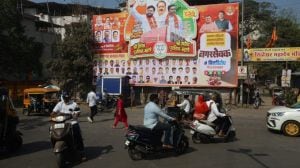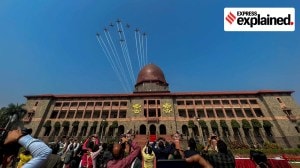Guest Column
Insular bureaucratsIf the government is serious about wanting to correct matters in the power sector, one thing it will have to do immedi...

Insular bureaucrats
If the government is serious about wanting to correct matters in the power sector, one thing it will have to do immediately is to free it of bureaucratic controls. For, apart from the fact that bureaucrats can be self-serving and obstructive, they do not understand the complexities and technicalities of the sector. They don8217;t know, for example, that electricity cannot be stored or that power generation follows a variable pattern of demand.
The point, however, is that all these system parameters can be precisely predicted by using system-studies 8212; unfortunately, despite being a world leader in software, this is not being done in India right now. The bureaucracy in the Ministry of Power prepared programmes for adding massive installed capacity in public and private sectors considering that once the country becomes surplus in generation, the power shortages will disappear.
Their contention, however, is totally wrong, as excess base load generation may actually derail thecountry8217;s grid operations. These bureaucrats have not thought of a balanced and matching programme to take power to the ultimate consumers at an affordable cost. It is a unfortunate that power plans have not been supported and confirmed by scientific system studies and CEA, an apex organisation for planning, has not been consulted and virtually rendered ineffective by the bureaucracy to serve their vested interests.
The damage is so serious that even if the most expensive power in the world is bought, it will still not reach consumers, since little attention has been paid to transportation systems which require massive investments which cannot be mobilised.
The cost of power which was amongst the lowest in the world till the Seventh Plan period has already become the highest and may even exceed Rs 10 per unit from new generation projects to consumers. The bureaucracy behaves like a big brother and tries to pass the buck to the SEBs who suffer from several weaknesses known to the central planners. Thisexcuse may not be in the national interest and bulk of the investment in the area of generation may remain unutilised.
It may come as a surprise to many that several SEBs are actually seeing a fall in demand for power, while the central planners are still forecasting a high demand growth of 8-10 per cent. The point being missed is that while it8217;s all very well for the bureaucrats and politicians to want to expand their empire by talking of mega projects and state trading in power, all these are inherently flawed 8212; the Indian need is to meet peaking shortages.
In the above context, it is vital to induct power professionals in the Ministry of Power. The Prime Minister is also very critical of the functioning of bureaucracy and greatly concerned. In the meanwhile, the entire work of planning should be entrusted to CEA, as was the case previously.
There should be a gradual approach to economic reforms as followed by Egypt, instead of accepting the shock therapy prescribed by the IMF and World Bank for anabrupt change. An Indian model of reforms be developed, as foreign models are unsuitable for us. The projects must be selected only on technical and sound economic rationale, above narrow political considerations. The country is already in deep power crisis and is heading for a super disaster unless the wrong policies are reversed and professionals for the entire power planning right from realistic load forecast, evaluation of growth rate of energy, identification of real ailments and remedies thereof, benefit-cost analysis etc., in consultation with the SEBs are involved so that this sector is put on optimal path.
The author is a retired chief of the CEA
- 01
- 02
- 03
- 04
- 05































